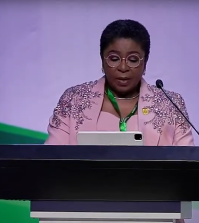UK departments and professions to win pay freedoms

The UK government’s Cabinet Office is developing plans to bring together its top specialists in dedicated units, whilst the Treasury is granting pay flexibilities to departments undertaking major reforms, civil service chief executive John Manzoni has told Global Government Forum. Both reforms are designed to support organisational reforms, though in very different ways.
The civil service needs “very wise, very senior, very experienced” people leading its central units and cross-departmental functions, he said, plus large numbers of technical specialists to help deliver reforms in the departments – “and the fact is that we can’t get those skills unless we pay slightly differently.” The jobs are so interesting, he argued, that “we don’t have to meet the market [on salary levels] completely, but we do have to loosen up a bit.”
Civil service salary increases have for years been capped at 1% a year, making it harder for departments to hire in the skills they need to enact reforms; meanwhile, limited movement of staff across Whitehall constrains the centre’s ability to deploy skills where they’re most needed. So the Cabinet Office is, Manzoni explained, “making a proposal for the senior commercial people in the civil service, that they are actually a self-contained unit that can be deployed out into the system.” This unit would enjoy flexibilities on the pay controls affecting the rest of the civil service, creating “the beginnings of a workforce which is deployable, movable”.
Meanwhile, in order to deliver reform plans affecting the working lives of thousands of staff, other departments are being allowed to offer some officials higher pay. “Treasury have said: ‘If you bring sufficiently transformative workforce plans, you can have some freedoms within the bits you’re transforming’,” Manzoni explained. “So DWP [the Department for Work and Pensions], they’re transforming their operational-level workforce. And they’ve been granted pay freedoms in those groups, provided it fits within a fiscal envelope.”
The freedoms, Manzoni suggested, are important in winning the support of remaining staff for organisational reforms that will save large sums by cutting the workforce and changing working practices: “The freedoms have been to say: ‘If there are going to be 10,000 fewer of you, and I want to move you from that town to a new office in that town, and I want you to work Saturday evenings, I’m not going to be able to ask you to do that if I don’t pay you at a market rate, and… that means I’ve got to raise your pay a little bit more than the 1%’”.
These new pay freedoms represent a change to the civil service reform strategy of the 2010-15 Parliament, when spending controls were extended across the civil service. And Manzoni acknowledged concerns that feathering controls could allow spending to rise again, noting that “we’re right at the thin end of the wedge on this. And of course that’s the issue: is it a wedge, and how do you control it?”























